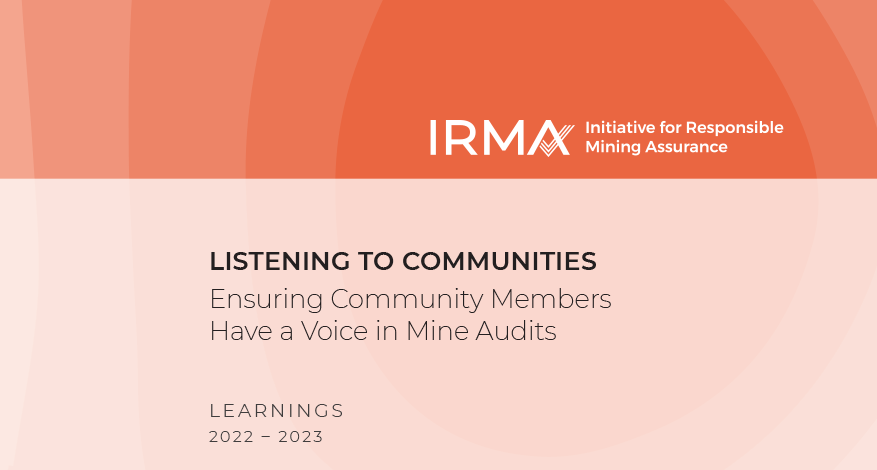Audit Community Engagement Learnings
For companies that depend on mined materials to make their products, any assessment of supply chain impacts must include a focus on the point where minerals are extracted from the earth.
There are various tools companies can use to better understand impacts at the point of extraction, including assessment of a specific mine’s performance against an established standard for responsible mining. The value of such an assessment depends on the quality of the standard and on the rigor and independence of the actual audit process. Among the diverse ways auditors assess a mine’s environmental and social impacts, one of the most crucial is direct engagement of communities and Indigenous rights holders.
Community members should have the opportunity to ask questions, to express concerns or outright opposition, and to learn firsthand how a mining company intends to address their needs and share the long-term benefits. People everywhere want a say in decisions that will shape their lives and they rightly expect their voices to be heard.
Over the past several years, as we’ve overseen an increasing number of independent audits, we’ve been exploring various approaches to better include communities living near mines in the process. We’re doing a great deal of testing and learning along the way, making small refinements and a few major course corrections, guided by insights from the six diverse constituencies who govern our initiative.
Supporting us in this effort is Mercedes-Benz Group AG, an IRMA member since 2020.
In 2022, Mercedes-Benz provided funding for IRMA to enhance and further explore how best to engage with mining communities. By implementing new practices and experimenting with alternative approaches to the auditing process, we’ve found ways to improve the community engagement already built into IRMA’s audit process.
The result of our collaboration is this report. It will guide our own practices as we continue to improve and, we hope, illustrate to all purchasers of mined materials — as well as mining companies, investors, regulators, other standards systems, NGOs and, of course, affected communities — how assessments in the industry might be strengthened, ultimately accelerating our common aim: to protect human rights and make mining more responsible.


